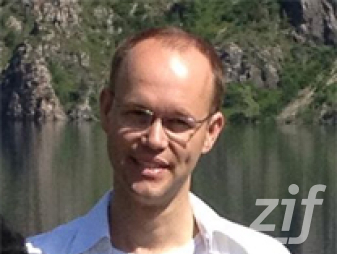Martin Schuster
Senior Field Representative of the Head of Centre
OSCE Office in Bishkek/Osch, Kyrgyzstan
December 2012 - November 2013
Career
- Studied theology in Greifswald, Berlin and St. Petersburg and European Integration and Development at the Institute of European Studies in Brussels.
- Worked as a vicar, policy officer and information and communications officer, including for the Association of World Council of Churches related Development Organisations in Europe (APRODEV) and the Geneva ACT Alliance in Kyrgyzstan.
- ZIF Expert since 2011; first position as election observer.
- Perspective: To continue working on conflict prevention, political analysis and the rights of minorities.
As senior field representative...
in the field office in Osch, I have an internal and an external coordination role and manage the OSCE presences in Batken and Jalal-Abad. In addition, I am responsible for early warning and reporting from Kyrgyzstan’s southern provinces, supplying senior management, colleagues in Bishkek and the conflict prevention centre in Vienna with analyses of political developments. In the southern provinces, I represent the OSCE in meetings with government authorities, political and NGO actors, as well as with domestic and international visitors.
Why a peace operation?
I treasure the direct exchange with different parts of society. When you can build trust, you can more clearly see both the challenges and the opportunities for reform. This exchange and experiencing the political dynamics in this country make my work very tangible, which I greatly enjoy. It also allows me to draw my own conclusions about conditions in Kyrgyzstan.
A major challenge...
is the high turnover of staff in international organisations like the OSCE. The constant change in experts offering recommendations for reform hampers the establishment of personal relations and confidence building among partners in Kyrgyzstan. Still, staff in state partner institutions also frequently changes, so that building trusted working relationships remains a continuous challenge, albeit a necessary one to master – in order to have a solid understanding of the situation.
“Sometimes I see ethnic Kyrgyz and ethnic Uzbeks moving towards each other after one of our seminars. In those moments, I know I’m in the right place with the OSCE.”
